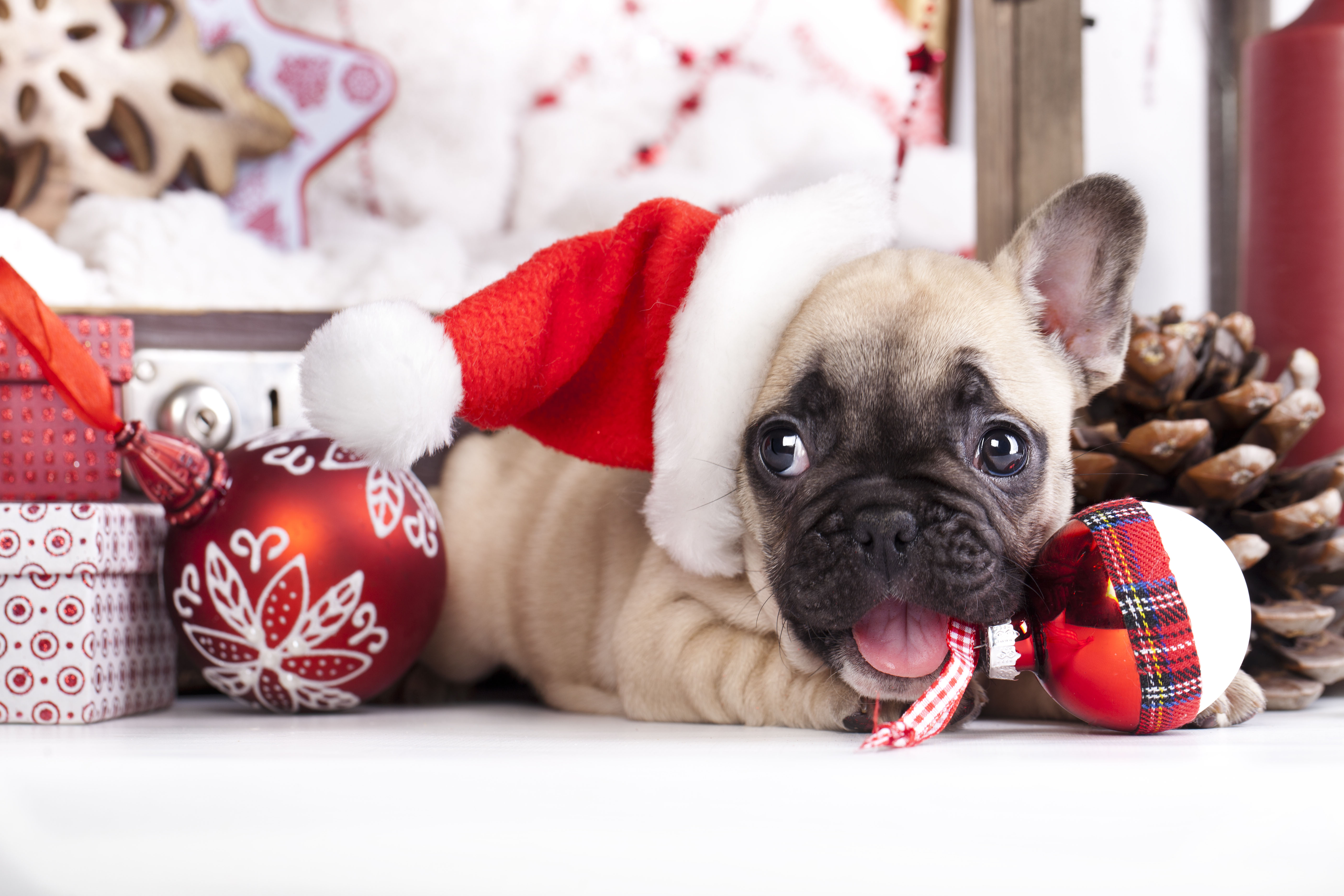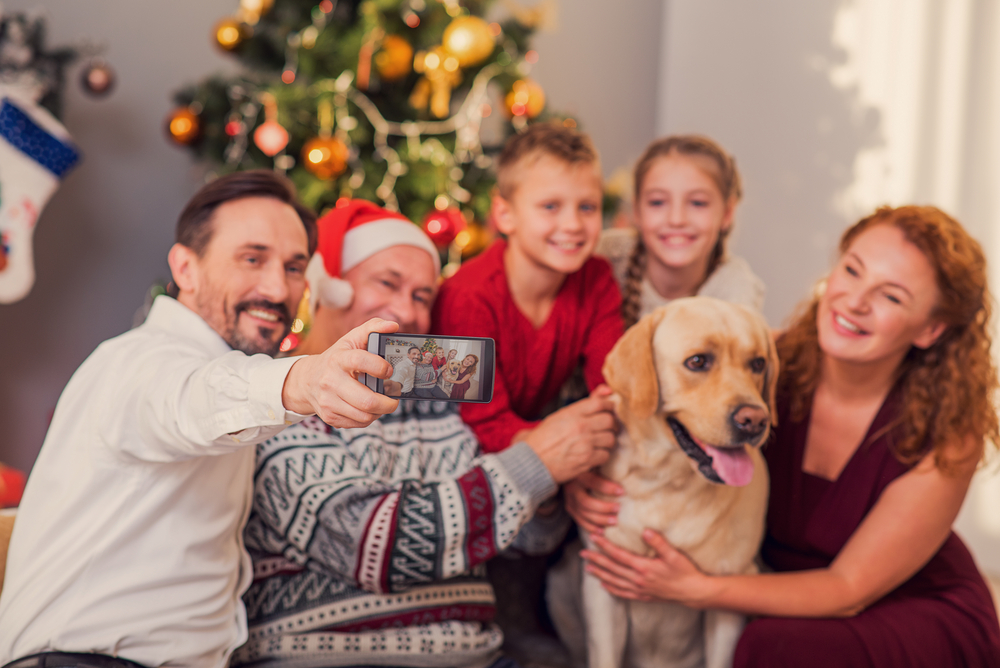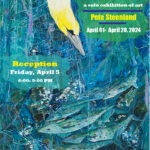
It’s often referred to as the most wonderful time of the year;
December is upon us and with that comes decorating, shopping and cooking for the upcoming holiday season. Christmas parties, and of course the big day itself, brings a lot of merriment, but can introduce a multitude of dangers and cautions for our furry friends who share our homes. Read along to help prevent a holiday hiccup.
Pet proof your decorations
- Secure that tree! Cats love to climb, and to them, a Christmas tree looks like the most perfect perch to climb up and scratch on. Make sure you tree is securely anchored to prevent it from falling over should a feline friend try to find their way up.
- Tinsel and other string-like decorations such as ribbons are incredibly tempting for cats, and this material often finds its way into our feline companion’s intestinal tract. Cats love to play with tinsel, and its common for them to get carried away and actually swallow some. This can lead to an intestinal obstruction or blockage, which may require surgery to fix.

- Keep wires and Christmas lights out of reach of pets; they are often chewed on which can cause an electrical shock.
- Holiday plants such as mistletoe, holly and poinsettias can cause vomiting, diarrhea and potentially other serious side affects if ingested by our pets. Many varieties of lilies can even cause lethal kidney disease in cats if ingested or chewed. Keep these out of reach of pets, or opt for artificial plants instead.
Plan a pet safe holiday gathering

- Our pets can be introverts, too! Sometimes a large number of people visiting can cause excess stress in our canine and feline friends. They may appreciate a safe space to relax throughout the party. Consider setting them up in a bedroom with some toys, water and a comfortable bed for the duration of the party. This also helps prevent them sneaking out the front door while guests arrive and leave.
- Hold off on the snacks. Many different holiday foods can be toxic to our pets (such as raisins & grapes, garlic, onions, chocolate and sugar free sweets containing Xylitol). If you plan on visiting someone’s house for the holidays, refrain from offering the resident pets samples of your snacks and treats.
- New Year’s festivities are exciting, but can be loud and frightening for our pets. In fact, fireworks are one of the leading causes of pets escaping and becoming lost. Keep your pets secure in the house during NYE and contact your veterinarian ahead of time if you would like to discuss potential anti-anxiety medications or other remedies for firework-phobia.
These tips should help prevent a pet emergency from tarnishing a merry celebration. However, if your pet does get into something they shouldn’t or just aren’t quite acting themselves, don’t hesitate to contact your veterinarian for advice. Wishing everyone a happy and healthy holiday season!
2260











